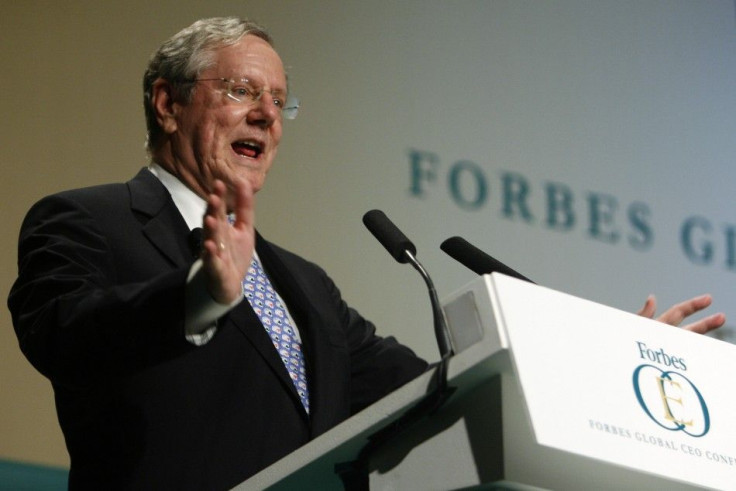Perry's Flat Tax Part of a Long History

Rick Perry's flat tax proposal is the latest alternative tax structure proposed by a Republican preidential candidate during this years primary. Herman Cain's 9-9-9 is perhaps the most infamous, inspiring economists, pundits and other politicians to point out the flaws and the potential for some American's to actually see an increase in taxes. The 9-9-9 plan is based on a 9 percent personal income tax, a 9 percent national sales tax and a 9 percent corporate income tax.
The first 9 is the one that most excites some conservatives and libertarians. The idea is that all Americans, regardless of how much or little money they earn in a year, will pay the same tax rate. This is compared to the current progressive tax system in which there are tax brackets which determine a persons rate. The more money a person earns, the higher their rate is.
If one candidate of the last 20 years is identified most closely with the flat tax, its 1996 Republican presidential candidate Steve Forbes.
Start by scrapping the tax code. Don't fiddle with it. Junk it. Throw it out. Bury it, said Forbes when he was a candidate. Replace it with a pro-growth, pro-family tax cut that lowers tax rates to 17 percent across the board and expands exemptions for individuals and children so that a family of four would pay no taxes on the first $36,000 of income.
Forbes later wrote a book about his ideas, Flat Tax Revolution: Using a Postcard to Abolish the IRS.
The flat tax's proponents believe that it is unfair to put a higher tax rate on a person just because they make more money--they believe this is a way of punishing the rich just because they happen to be better off.
A flat tax would treat people equally, wrote Daniel Mitchell in a 2005 paper for the conservative Heritage Foundation. A wealthy taxpayer with 1,000 times the taxable income of another taxpayer would pay 1,000 times more in taxes. No longer would the tax code penalize success and discriminate against citizens on the basis of income.
The flat tax's critics, though, claim the plan places too much of a burden on poor and middle class Americans.
Politically, the idea falls apart rather quickly when middle-income voters realize that its main effect is to cut taxes on the financially privileged while usually raising them on Americans who have more modest incomes, syndicated columnist E.J. Dionne recently wrote.
Forbes ran again in 2000, and the flat tax was again the most important part of his platform.
Now, he is supporting Perry on his new flat tax proposal.
Bloomberg reports that Perry's plan will essentially give individuals the choice between keeping their current tax rate, including deductions and loopholes, or to take a flat 20 percent tax rate.
Many see Perry's announcement as an attempt to regain his lost momentum in the campaign, which has floundered in the months since he entered the race near the top of the polls.
© Copyright IBTimes 2024. All rights reserved.











